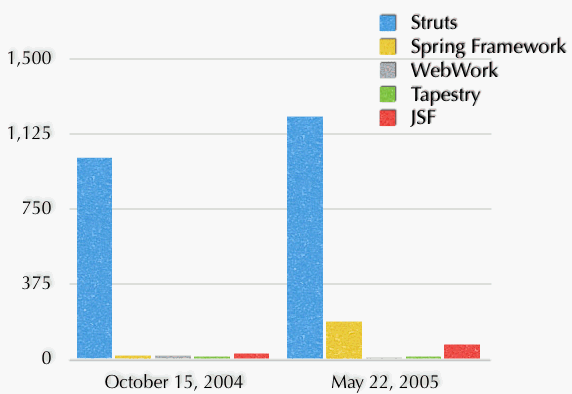[DJUG] Rhythm and Developing a Successful Open Source Strategy
Tonight looks like it's going to be a good Denver JUG meeting. The Basic Concepts speaker (Brian Boelsterli) is an old friend of mine and one of my mentors from way back in 2001. He taught me a lot about independent consulting, open-source and software development processes. I expect his talk on his Rhythm: an Agile Execution Framework to be excellent. Here's the summary:
Wouldn't it be nice if you could bring to the table a simplified list of practices that you can plug-into your 'Ecosystem' with tremendously successful results? Say, for example, 169 successfully completed iterations! When you think about spinning iterations, once you complete 10-12 of them, you reach your pace, your hearbeat, your Rhythm. This has been our experience!
Come see how you can plug-in 'Rhythm' into your organization and immediately impact your organization with achievements and successes you've never imagined your team could accomplish.
Following Brian is Lajos Moczar talking about Creating A Successful Open Source Strategy. With my new venture at Virtuas, this talk will definitely be interesting since it aligns with what we're doing for organizations.
In recent years, we have seen not only an explosion in the quality and quantity of open source software (OSS), but also a dramatic rise in its usage. These trends bring new challenges to adopters and evangelists of open source software as OSS is proving to be true alternative to traditional commercial software. As developers, many of us have the unique chance to demonstrate to our organizations that OSS is indeed mature enough to power an enterprise. What is important, however, is to have a solid foundation of principles to guide us through the maze of OSS choices. In this talk, I'll present my own set of guidelines that can help you make sense of the field, avoid common pitfalls, and create a successful OSS strategy.
Of course, the best part of these meetings is the networking afterwards at Rock Bottom. 



